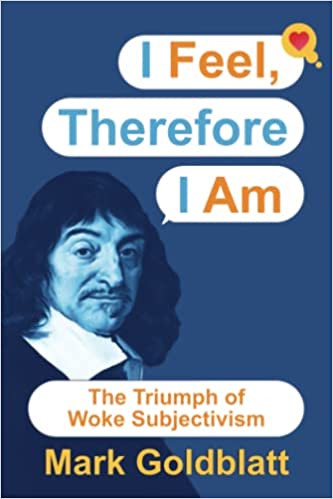"Woke pathologies of our day..begins with René Descartes, moves through the development of idealism by Bishop Berkeley & Immanuel Kant, & ends with the triumvirate of what Goldblatt calls “postmodernism’s stooges”: Jacques Derrida..and Michel Foucault"
books reviewed
The term “woke” permeates the news today. In conflicts over K-12 education policy; diversity, equity, and inclusion in higher education; or environmental, social, and governance principles in relation to investment strategies, the w-word seems never more than a clause or two away. “Woke” began as meaning something akin to “aware of racial prejudice,” but has morphed in recent years to carry much more ideological freight. It now refers to a commitment to a set of radical and progressive ideas on a host of issues, not merely those connected directly to racism. In our polarized time it has become a shibboleth.
Thankfully, a number of recent books help us navigate the meaning and significance of wokeness. Helen Pluckrose, James Lindsay, Christopher Rufo, and Douglas Murray have each made signal contributions in this area. I Feel, Therefore I Am is Mark Goldblatt’s addition to the literature.
The philosophically astute Goldblatt, a teacher at the Fashion Institute of Technology of the State University of New York, approaches his subject by setting a handful of the woke pathologies of our day against the background of the “turn to the subject” in Western thought. The first chapter provides a philosophical genealogy of wokeness. It begins with René Descartes, moves through the development of idealism by Bishop Berkeley and Immanuel Kant, and ends with the triumvirate of what Goldblatt calls “postmodernism’s stooges”: Jacques Derrida, Roland Barthes, and Michel Foucault. Goldblatt highlights some of the egregious implications of the thought of these men, especially how it leads to skepticism about objective truth both in regard to the inadequacy of language to express truth and the suspicion that truth claims are ultimately manipulative bids for power, not disinterested statements about reality. He also notes the misuse by humanities professors of concepts such as Heisenberg’s uncertainty principle and Einstein’s theory of relativity. Ironically, he might have been able to use a little Foucault here to point out that, in using these principles to give their ideological fantasies a veneer of scientific credibility, such professors are themselves engaging in a form of power play.
***
Goldblatt examines Critical Race Theory (CRT), #MeToo, and transgenderism in subsequent chapters. In each case, he offers examples of the absurd claims that their proponents make...


Comments